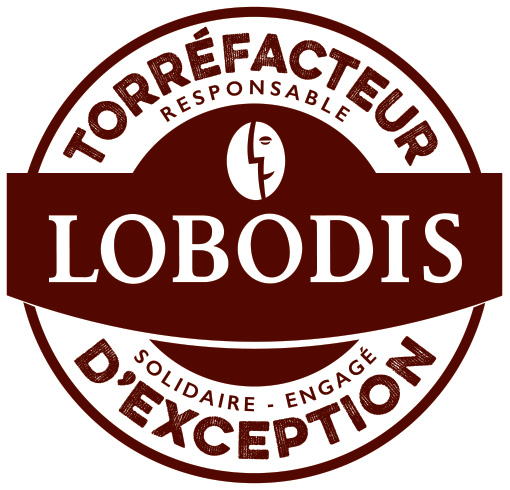News & Monitoring
Lobodis, for a responsible coffee, from the bean to its distribution
Category: portraits | Published on : 23/04/21
PORTRAIT
The Breton roaster, a pioneer in the marketing of fair trade and organic coffee in supermarkets, is now tackling the carbon footprint of its transport, with a target of reducing its GHG emissions by 10% by 2022, announced when it signed up to the FRET21 scheme, a scheme supported by the AUTF and ADEME as part of the EVE programme.
Created in 1988, Lobodis has been committed to fair trade since its origins. However, a few years ago, the Breton company set up a real CSR strategy, called "Act & Respect", to structure this commitment. In addition to the desire to grow a responsible economic sector for producers and consumers, Lobodis wants to actively fight against global warming. Its membership of the FRET21 scheme, initiated by the AUTF and ADEME, is fully in line with this desire. The company has announced a 10% reduction in greenhouse gases from its logistics by 2022.
To achieve this, actions are being taken at various levels of the business. First of all, Lobodis wanted to work on the Filling Rate vehicles of its transport service providers. The company began by reviewing, with its supplier, the packaging of its coffee pods, so that each "ready-to-sell" box contains 12 rather than 10. " We have also changed boxes for transporting 500g bags of beans, to limit the empty space and increase the number of packages per pallet," adds Guillaume Brohan, Lobodis logistics manager. Discussions have also been initiated with one of its carriers to switch to double-trailer or double-deck trucks. These two actions, a change in packaging and vehicles with greater loading capacities, will make it possible to reduce the number of trucks on the roads thanks to an optimization of Filling Rate, for a 15% reduction in CO2 emissions.
Lobodis is changing its flow patterns
With two thirds of its volumes being sold to French supermarkets and hypermarkets, Lobodis wants to review its flow diagrams, particularly with the Carrefour chain. For the moment, the roaster sends its coffee from its warehouse-factory in Bain de Bretagne (35) to two consolidation centres, one in the south and the other in the north. The products are then sent to the company's secondary warehouses, which then transport them to its stores. Carrefour takes care of organising the flows between the consolidation centres and the secondary warehouses, but charges Lobodis for these transports. The idea of Lobodis is therefore, in the long term, to eliminate this intermediate storage and deliver directly from its factory to Carrefour's secondary warehouses. In addition to saving on the total number of kilometres travelled between the factory and the secondary warehouses via the consolidation centres, this reintegration of flows would enable Lobodis to continue setting up the pooling of its deliveries. The company is already part of a GIE (Groupement d'Intérêt Economique) bringing together various shippers of the tip of Brittany. By having control over all transport orders, Lobodis could optimize its deliveries by coordinating with the other companies in the EIG, which are also Carrefour suppliers.
Thinking about tomorrow
As part of its CSR strategy, Lobodis is also committed to using as many carriers as possible who are committed to the Objectif CO2 scheme, which is also supported by EVE (Engagement Volontaire pour l'Environnement) and ADEME. "Some of those we work with are already, but we would like to increase their number by at least 5% by the end of our commitment in 2022," hopes the logistics manager, who remains attentive to developments in the transport sector: new fuels in the maritime sector, new ships, new rail freight lines from Brittany... " Our CSR policy set up a few years ago, like our commitment to FRET21, represents a common project, shared by all employees," adds Guillaume Brohan. Measuring our carbon footprint, and the levers we have put in place to reduce it, has given us perspective and led us to question both the ecological and economic aspects of our logistics activities.



